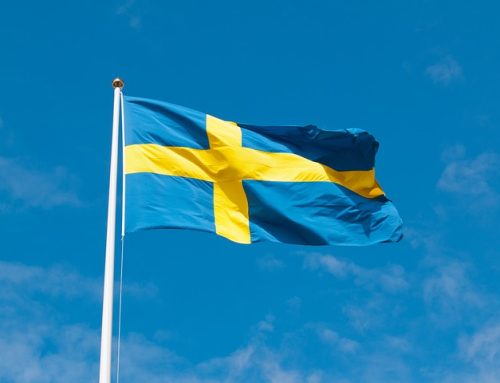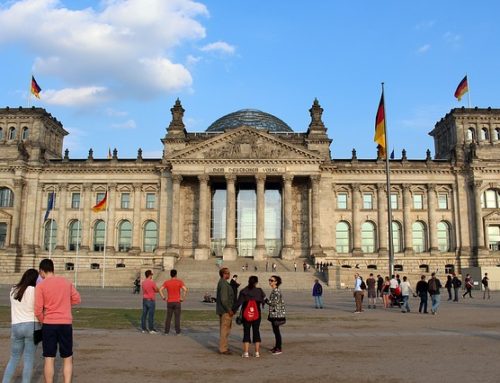Income Exemption for Social Content Creation on Platforms like YouTube, Instagram, Twitter, TikTok, and App Development for Mobile Devices
Eligible Individuals, Conditions, and Special Circumstances in Exemption Application
ARTICLE 4 –
(1) The exemption applies to individuals who produce social content by sharing text, images, audio, or video on social media platforms, as well as those who develop applications for mobile devices like smartphones and tablets.
(2) It is irrelevant whether taxpayers are full or limited taxpayers for this exemption application.
(3) To benefit from the exemption, individuals engaged in the activities mentioned in the first paragraph must open an account at banks established in Turkey to collect all the income derived from these activities.
(4) Those wishing to benefit from the exemption must apply to the tax office authorized for assessment in their place of residence and obtain the “Exemption Certificate for the Implementation of Article 20/B Reiterated of Law No. 193” (Exemption Certificate) as per Annex-1 from the relevant tax offices. For the exemption application, the following rules apply based on the taxpayer’s status:
a) If the taxpayer has an existing income tax obligation due to commercial gains, the tax office will verify if the registered activity is in line with the activities covered by the exemption. If the registered activities fall within the scope of the relevant article, an exemption certificate will be issued.
b) If the taxpayer does not have an existing income tax obligation for commercial gains, the exemption certificate will be issued following the registration of the taxpayer’s activities that fall within the scope of the exemption.
Example 1: A social content producer (A) with an existing income tax obligation applies for an exemption certificate on 8/2/2022. The tax office confirms that the registered activity aligns with the exemption criteria and issues the exemption certificate.
(5) The exemption certificate obtained from the tax office will be used to open the bank accounts where the revenue related to the exempted activities will be collected. Existing bank accounts can also be used exclusively for collecting revenue from these activities by presenting the exemption certificate to the relevant bank.
(6) To utilize the exemption, if a new bank account is opened, or an existing one is repurposed for this use, the bank account details (bank name, branch, IBAN) must be reported to the affiliated tax office within one month.
(7) To qualify for the exemption, the total revenue from the exempt activities must not exceed the amount stated in the fourth income bracket of the tariff in Article 103 of Law No. 193. This assessment will be made annually at the end of each calendar year.
(8) Eligible taxpayers will not be required to file an annual income tax return for income derived from activities covered by the exemption. However, if they file a return for other income, the income from these activities will not be included in that return.
Example 4: Taxpayer (Ç) earns 450,000 TL from social content production and 550,000 TL from intercity passenger transportation in 2022. The income from social content production does not exceed the limit (880,000 TL for 2022); hence, this income will not be included in the annual income tax return.
(9) If taxpayers lose the exemption conditions or violate them, they will not benefit from the exemption for the year in which the condition is lost or violated, and the total income will be declared in an annual tax return.
(10) In case of exemption violations, taxpayers can deduct expenses and allowances stated in Articles 40 and 89 of Law No. 193 from the declared income. However, these expenses must be substantiated with documents specified in Law No. 213.
(11) Taxpayers who lose the exemption benefit or violate its conditions are not required to submit provisional tax returns for the periods when the exemption is not applicable. However, they must continue to submit provisional tax returns for other non-exempt commercial activities.
(12) Banks will withhold income tax on the revenue obtained under Article 20/B reiterated of Law No. 193. No additional withholding will be made for payments related to these activities.
Example 6: A social content producer (E) rents a workspace and employs a worker. The producer earns 950,000 TL from social content production in 2022. Since the income exceeds the fourth income bracket (880,000 TL for 2022), the exemption is not applicable, and the income will be declared in the annual income tax return.
(13) The exemption applies only to individual income taxpayers; corporate income taxpayers are not eligible.
(14) Only revenue obtained from electronic application sharing and sales platforms is exempt for mobile application developers. Other forms of income, such as direct sales to software companies, are not exempt.
(18) The exemption covers income from advertising, sponsorships, donations, gifts, tips, and subscription fees obtained through social media platforms.
(19) The exemption also applies if social content creators receive their revenue through third-party service providers, provided other conditions are met.
Example 11: A content producer (İ) shares content through both personal and third-party accounts. The third-party service provider deducts a commission and transfers the remaining amount to the producer’s designated bank account. This revenue is eligible for the exemption.
(20) Personal websites, e-commerce sites, and news sites do not qualify for the exemption if they primarily offer content as a secondary service.
Example 12: The taxpayer (J) provides recipes on their personal website and publishes videos about how to prepare the dishes. Advertisements are placed in specific sections of the taxpayer’s personal website, and revenue is generated from these advertisements.
Since personal websites that include content for social interaction purposes only in specific sections cannot be considered as social network providers, the income earned through the taxpayer’s personal website cannot be exempted.
Example 13: The taxpayer (K) publishes educational videos on mathematics through a social network provider and earns revenue from advertisements shown during the videos.
Since the social content production activity is conducted through a social network provider, the income obtained through sharing ad revenues can benefit from the relevant exemption provisions.
Source: Corporate Tax Law General Application Communiqué
Legal Notice: The information in this article is intended for information purposes only. It is not intended for professional information purposes specific to a person or an institution. Every institution has different requirements because of its own circumstances even though they bear a resemblance to each other. Consequently, it is your interest to consult on an expert before taking a decision based on information stated in this article and putting into practice. Neither Karen Audit nor related person or institutions are not responsible for any damages or losses that might occur in consequence of the use of the information in this article by private or formal, real or legal person and institutions.






